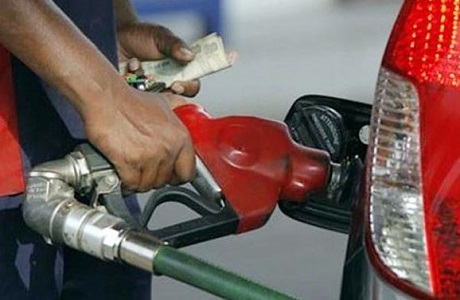Petrol, Diesel Imports Drop After Border Closure
Posted by Victor on Fri 15th Nov, 2019 - tori.ngFile photo: Petrol, diesel imports drop after border closure
The nation’s imports of petrol and diesel fell by about 11 per cent and 15 per cent, respectively in September, latest data released by the National Bureau of Statistics on Thursday showed.
The decline in the imports of the petroleum products followed the partial closure on August 22 of the nation’s land borders with countries such as Benin and Niger in order to check smuggling of contraband into the country.
The volume of the Premium Motor Spirit, also known as petrol, imported into the country dropped to 1.46 billion litres in September, down from 1.64 billion litres in August and 1.99 billion litres in July.
The NBS data showed that petrol imports stood at 2.24 billion litres in January; 1.56 billion litres in February; 1.07 billion litres in March; 2.07 billion litres in April; 2.01 billion litres in May, and 1.53 billion litres in June.
The country imported a total of 5.09 billion litres of petrol in the third quarter of the year, down from 5.61 billion litres in the previous quarter.
A total of 4.89 billion litres of petrol was distributed by trucks to all states in Q3, compared to 5.18 billion litres in Q2, according to the NBS.
The volume of Automotive Gas Oil (diesel) imported into the country dipped in September to its lowest level this year at 322.63 million litres, compared to 377.91 million litres in August and 483.93 million litres in July.
Diesel imports hit a high of 580.39 million litres in June, rising from 452.19 million litres in May; 351.18 million litres in April; 391.21 million litres in March; 379.75 million litres in February, and 436.03 million litres in January.
The country imported 1.18 billion litres of diesel in Q3, down from 1.38 billion litres in Q2.
The data also revealed that a total of 1.25 billion litres of diesel were distributed across the country in Q3, compared to 1.28 billion litres in the previous quarter.
Nigeria, Africa’s top oil producer, relies heavily on importation to meet its fuel needs as the nation’s refineries remain in a state of disrepair.
The Nigerian National Petroleum Corporation had said in early September that the recent closure of the borders might have contributed to the huge reduction in petrol evacuation from fuel depots.
“Significant drop in the PMS evacuation from fuel depots noted since August 22nd may be connected to border closure and other interventions of the security agencies aimed at curbing smuggling. We will contain smuggling of the PMS,” the Group Managing Director, NNPC, Mele Kyari, tweeted on September 7.
The corporation had said in July that petrol was being smuggled out of the country to Ghana, Burkina Faso, Mali and Cote d’Ivoire as a result of the price disparity of petrol between Nigeria and the other West African countries.



















































